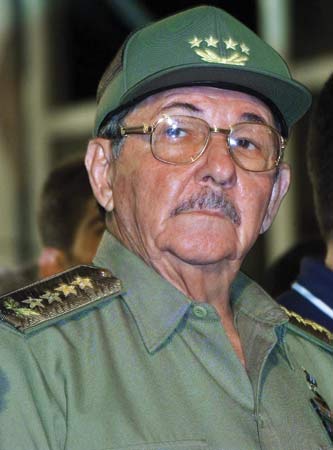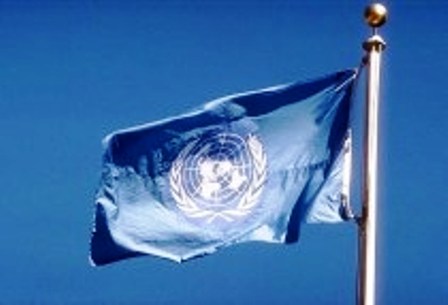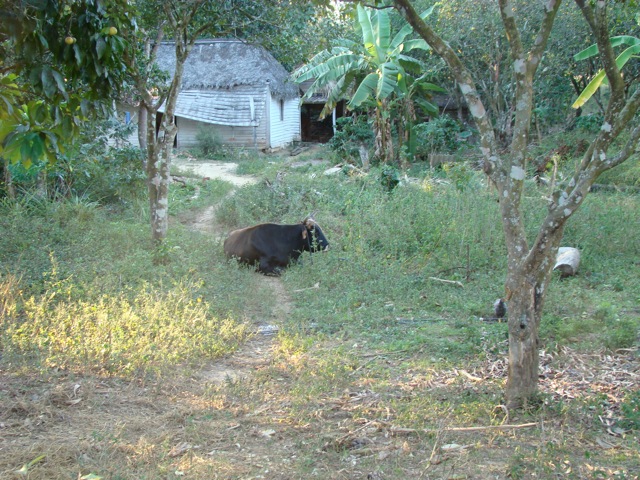
By Wichy García Fuentes | Originally appeared in Revista Replicante
A Cuban writer has just been sentenced to five years in jail for a crime he never committed. He has just been sent again to the galleys for that bad obsession that some have to wish that a hundred, fifty, ten, five or one person should have the same right to think and choose as the other millions of Cubans.
It was ten years ago that Ángel Santiesteban appeared at the International Book Festival of Guadalajara, where he was taken by the Cuban cultural authorities after winning the Alejo Carpentier Prize for his compilation of the stories The Children Nobody Wanted. continue reading
Ten years ago Ángel Santiesteban dared to be the discordant voice in a delegation which, on being asked constantly by university students about the human rights situation in Cuba, could only repeat the Fidelist refrains which, for half a century, have accused anybody with his own ideas of being “an imperialist mercenary”, and, not being able to tolerate this, that brilliant narrator born in 1968 said publicly that “a hundred, fifty, ten, five or one person have the same rights to think and choose as the other millions of Cubans”, receiving the applause of the young audience, an applause which greatly irritated the government representatives at the FIL (International Book Festival), and with the result that for the rest of the event, they deliberately detached themselves, without trying to hide the fact, from the programmed activities.
Ángel Santiesteban had received the Carpentier Prize, after obvious skirmishes with the Casa de las Americas, which he finally gained after two attempts in which the jury came under pressure from the authorities to put him to one side to make room for others — on those two occasions (1992 and 1994) the winners were, according to Amir Valle, “two of the weakest books to gain prizes in the history of that competition in the story category” — and although by 1995 he was able to win the UNEAC (Unión de Escritores y Artistas de Cuba) prize and the Carpentier in the 2001 competition, it was onlyin 2006 that he was recognised by the Casa de las Americas, in a half-hearted recognition, which was not free from pressure on the jury, and which hardly allowed him to enjoy the controlled publication of Happy are those who mourn.
Nevertheless, his books, mostly published with a mediocre presentation, immediately sold out in the Book Fairs in Havana. They flew off into the eager hands of the same readers who left the most officially-favored volumes to gather dust on the bookshelves.
Ángel Santiesteban had already suffered imprisonment. Although absolved after a tribunal recognised that there had been no crime in seeing off his sister on the coast – she illegally left the island – he just the same had to suffer fourteen months in jail before it was recognised he was innocent of the supposed crime of a “cover-up.” From that experience emerged literature, translation into the written word of the hunger and inhumane treatment in the Cuban prisons.
But the NeoStalinist regime could not permit what happened next. Ángel, who had already made clear his ethical line on officialism, opted to write his opinions and to publish them in the nascent independentCuban blogosphere. An old friend, the poet Camilo Vanegas, instructed him in internet avatars and Blogspot. Like a good Cuban, half-literate in 2.0, he hit the net and brought out the blog The Children Nobody Wanted, taming the limitations of connectivity on the island and posting whenever he could his written criticisms, his truths and his explicit risk.
At the end of 2011 Ángel had a legal process to face, a Kafkaesque mechanism with the intention of seeking to sentence him to fifty years for alleged crimes of rape, robbery, attempted homicide, threats, harassment, injuries, and running over a child on the public highway. All of this in a very badly written script in which his ex-wife banded together with an official of the political police in order to cause him the greatest possible damage.
The false evidence was falling apart little by little and only terminatingat the end of 2012 — and after the writer and other peaceful activists were brutally detained opposite an office of the State Security in Havana, beaten up and locked up for several days — the dreadful process started up again and Ángel Santiesteban, once again without evidence and with sufficient witnesses in his favor, is brought before the “revolutionary tribunals” and sentenced to five years prison for the shamelessly fabricated offences of housebreaking and injury.”
He isn’t, by a long way, the first Cuban to bestitched up by false accusations, clumsily put together by the Castro dictatorship. Many others have been systematically discredited by official publicity, sent to jail on unlawful charges, but until recently the dissent moved compulsively into areas of physical protest, with little thought of philosophy or sociological analysis.
Ángel, in his role of prestigious storyteller, joined in the debates that another intellectual, Antonio G. Rodiles, had arranged in his house. Estado de Sats refers to that space for integration, conceptualisation, civic projection, which is so much-needed by the new generation to share their differing thoughts.
The government has not been able to show a relationship, even superficially, with the CIA or with the United States Interests Section in Cuba. It hasn’t been able to find a way to demonstrate “imperialist mercenary”, so as to impose an unofficialpunishment. The false accusation of aggravated crimes could be the answer, since among so many alleged crimes something is likely to work. And it worked.
A Cuban writer has just been sentenced to five years in jail for a crime he never committed. He has just been sent again to the galleys for that bad obsession that some have to wish that a hundred, fifty, ten, five or one person should have the same right to think and choose as the other millions of Cubans.
Young university students applauded Ángel Santiesteban Prats ten years ago at the International Book Fair in Guadalajara. Today, the writer needs them, and the Mexican intellectuals who can still distinguish between the revolutionary utopia and the decadent obstinacy of a totalitarian regime which cons all of us equally.
Given that the media and the limited virtual network in Cuba remain under the strict control of his captors, Ángel Santiesteban needs international help, needs the solidarity of his colleagues and as many decent people as can join together in the social media to demand his freedom.
Published by Revista Replicante
Translated by GH
January 25 2013
















